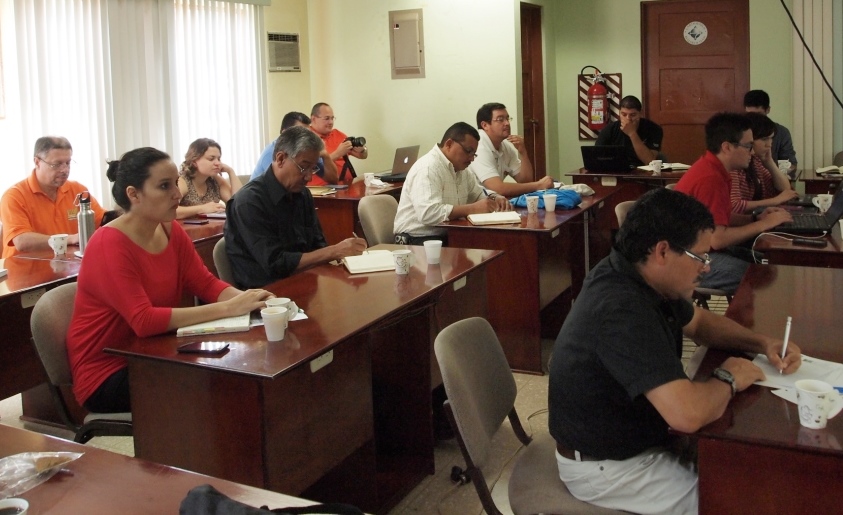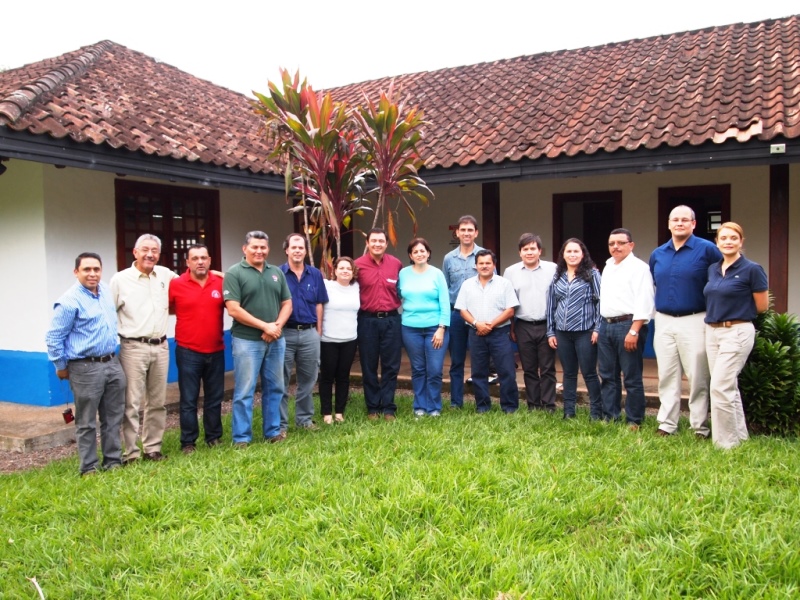
 On November 19-22, 2013, representatives from 15 Central American coffee growing organizations attended a workshop to learn about new techniques to reduce energy costs and increase profits while curbing carbon emissions and caring for the environment. The four-day event was hosted at the Research Center for Electrochemistry and Energy Chemistry (CELEQ) in San José, Costa Rica.
On November 19-22, 2013, representatives from 15 Central American coffee growing organizations attended a workshop to learn about new techniques to reduce energy costs and increase profits while curbing carbon emissions and caring for the environment. The four-day event was hosted at the Research Center for Electrochemistry and Energy Chemistry (CELEQ) in San José, Costa Rica.
Coffee industry representatives were apprised of ways to effectively deploy renewable energy technologies and implement energy saving measures. Five technologies werestudied: solar photovoltaic, solar heating, wind, hydro and biomass. The training sessions included the review of technical requirements and specifications to install these technologies, equipment maintenance, and project financing. The University of Costa Rica (UCR) School of Agricultural Economics and Agro-Business Development designed an investment analysis tool for small producers. This tool allows them to assess the costs and benefits of diversifying their sources of energy using renewable energy to power their coffee mills. Based on this technical and financial information, coffee growers can improve energy decision-making.

This ECPA initiative seeks to change the dominant energy model in coffee production. It teaches coffee growers how to increase their profit margins and become more competitive by reducing energy consumption and using renewable energy. In addition to conserving energy—the highest cost of production— the energy model advanced by this ECPA initiative contributes to curbing greenhouse gas emissions in Central America. Arturo Sánchez, of the National Coffee Association (ANACAFE) of Guatemala highlighted the importance of the workshop. “Central American countries must use their resources rationally to achieve long-term sustainability,” said Sánchez. Roger Montalván, of the National Council for Coffee of Nicaragua, said that “this type of initiative allows us to acquire experience in renewable energy, viewed as a complement to the national fossil fuel energy system common in our Central American countries. They facilitate knowledge for the development of new pilot plans, at least in Nicaragua.”
In addition to technical capacity building, this ECPA initiative deployed a 15-kilowatt photovoltaic system at the Coffee Growers Cooperative “CoopeTarrazú”, located in Tarrazú, and a 3-kilowatt windmill at the San Isidro de León Cortés Coffee Growers Union (UNDECAF). Workshop participants visited these and other projects during the workshop. The Honduran Coffee Institute (IHCAFE), the Coffee Institute of Costa Rica (ICAFE), the National Chamber of Coffee Growers (CamCAFE), the Ministry of Agriculture of Costa Rica and other organizations also attended the workshop.

 View Map
View Map